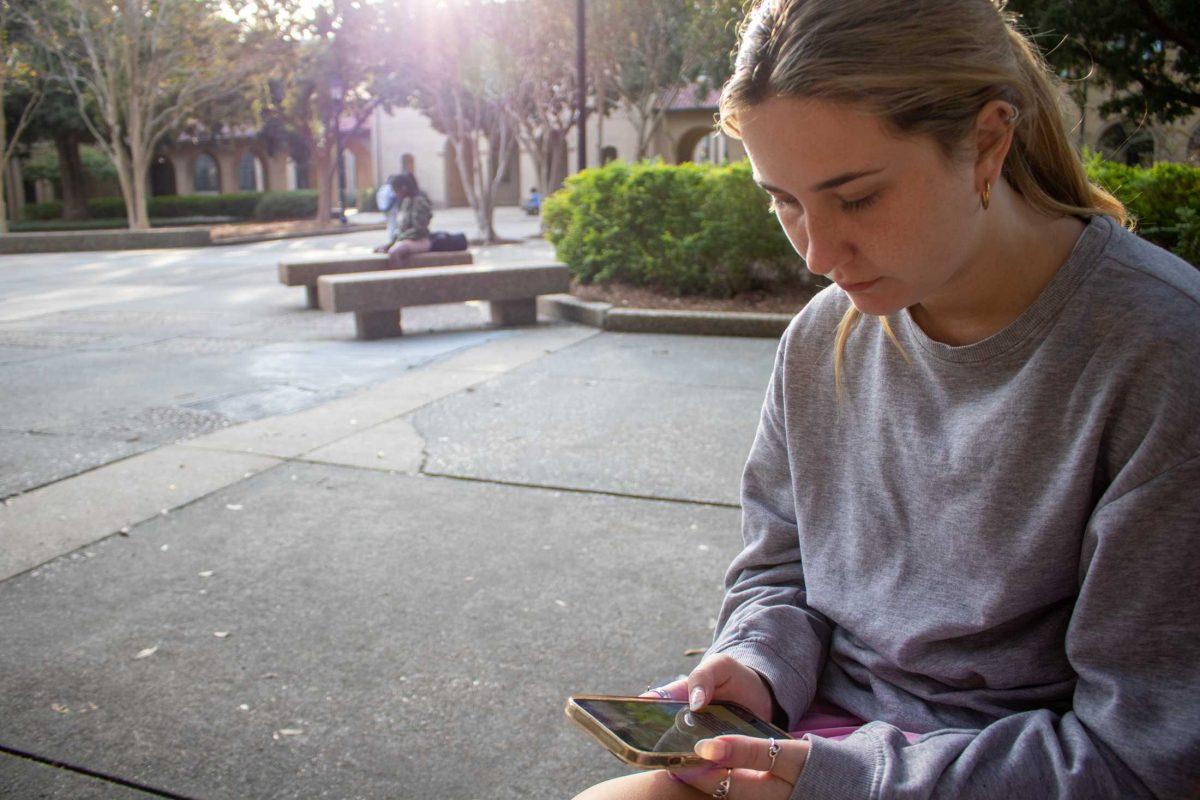LSU’s Pennington Biomedical Research Center has partnered with Amazon to help further develop and improve Halo an artificial intelligence application device designed to fight obesity and diabetes.
The primary researcher on the collaboration is Pennington’s Steven Heymsfield, Louisiana’s only Amazon Scholar and among some of the first scientists to define body mass index, a tool used to measure an indication of nutritional levels and determine whether a person has obesity or not.
The Halo app utilizes smartphone photography AI to act as a wellness tracker for a person’s health. The app, launched in 2020, tracks multiple body functions, including sleep and movement; Heymsfield focuses primarily on the body composition of the app. This mainly consists of measuring fat percentages.
Heymsfield explained that the purpose of the Halo app is to reconstruct a 2D image of the human body and transform it into a 3D image after taking a photo. With the support of AI technology and photography, the Halo can help provide a diagnosis concerning obesity and diabetes.
“We are going to be able to get much better predictions of health earlier,” Heymsfield said. “Once we can estimate a person’s risk, we are going to be able to prevent diseases, not just treat them but prevent them.”
Heymsfield said that another benefit of the app is how affordable and easy the fight against obesity and diabetes will be within clinics or even homes.
“I think it’s going to allow us to reach many more people who need this support,” Heymsfield said.
Although Heymsfield said that lab testing worked positively, he defined the challenges of using Halo as a “technological obstacle,” and said that lighting, distance and clothing are all factors to consider as a hindrance for the app.
For example, he said bad lighting can disturb the quality of the picture, distance causes interference in the photo and poor choice of clothing may not be reliable for the technology to function properly.
“Ideally, a person should be wearing tight-fitted clothing like spandex or swimsuits,” Heymsfield said. “If you wear your best suit, it won’t work because the photograph needs to capture the person’s actual shape.”
The Amazon Halo app must be purchased for consumer use. The app and monitor band combination costs $99.99 but there is also a six-month membership available for $64.99. The membership gives access to all features of the app including step count, sleep time, heart rate and overall wellness.
Heymsfield said that Halo’s influence on people is expected to be a “big milestone” and will be capable of fulfilling major gaps that are commonly overlooked within the health field. He said that this iteration of the technology is just the beginning.
“Better technology will lead to better analysis,” Heymsfield said. “What you see now is just the start because we are going to be able to see things we could never dream of.”
Others are unsure of the app.
LSU law student Milani Villarruel said that she would not put her trust in the Halo app despite its positive lab results.
“I played college sports during my undergraduate years, and I still run sometimes,” Villarruel said. “I don’t support it because I don’t feel like the BMI data represented would do an accurate job of telling or helping people become healthier.”
Villarruel said that health can be displayed in many ways, gym results only being one of them, and that this app may just be another “money-grabber” tactic.
She also expressed her opinions on AI technology being in the position to influence others on their own body. Improper dieting, liposuction surgery and Brazilian butt lifts are all examples of the negative influence culture already has on people’s perceptions of their bodies, Villarruel said.
“I don’t think the app can benefit people here because BMI might cause people to think that they need to change their body,” she said. “Just because someone is rounder doesn’t mean you’re out of shape or unhealthy. “
LSU graduate Levi Slack said that he thinks the app would be helpful to those who are interested in learning more about their bodies. Slack, who studied athletic training, said that it’s hard to tell right now, but he is leaning toward saying no to supporting the app due to some personal concerns.
“I’m cautious of the things that would be tracking me and how much information is secure because it seems like you would need a lot of information for the app to work properly,” Slack said.
However, Slack said that the Halo app could be a great benefit to LSU students, particularly freshman and out-of-state students living on campus.
“At LSU, it’s harder for students to find doctors so if someone isn’t able to find help from the Student Health Center or isn’t able to go off campus, then I feel like this app would come in handy,” Slack said.




